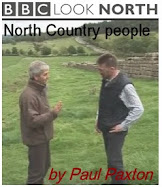Recent events in the Middle East, or rather several millennia of tragedy in the area, has highlighted the issues of Gods, and the problems they cause, so should archaeologists have any dealings with the supernatural?
Meta-parables
Faith changes people’s lives, although it is often other folk’s beliefs, rather than our own that have the most significant impact; my life changed forever at Newcastle University where my work based on mathematics proved no match for a revelatory “Iron Age Building Cosmology”; as we shall see, when creating myth a power-base is more important than an evidence base. While rationality, at least as expressed in science and maths is universal, Gods, despite their claims are usually fairly locally based, archaeology is aware of this because we know where they lived. While Gods clearly can inhabit a variety of elements and dimensions, it probably saves confusion when interacting with human society if they have a principle residence from where they can transact their business.





















